
Peter Campbell
Wellcome Sanger Institute
UK
EMBL Conference
EMBL is committed to sharing research advances and sustaining scientific interaction throughout the coronavirus pandemic. We are delighted to announce that this conference is going virtual and invite you to join us online.
This conference will provide an opportunity to learn about and keep up to date with the rapidly progressing area of cancer genomics. It will cover presentations from cancer genome projects, the areas of cancer functional genomics, systems biology, cancer immunogenomics and epigenomics, cancer mouse models and the translation and clinical impact of obtained scientific results. The meeting will bring together leading scientists from across these areas for a unique opportunity to interact and stimulate further integration of these efforts.
“EMBL provided a wonderful opportunity for the exchange and application of new ideas within the OMICs cancer research. A great conference!” – Angelica Boldt, Postgraduate Program in Genetics, Department of Genetics, Federal University of Paraná (UFPR), Argentina
“This is the third time I have attended this conference. I keep coming back because of the quality of work presented, the expectation that presenters discuss their latest findings and the meeting having the optimal number of attendees.” – Sean Grimmond, University of Melbourne, Australia
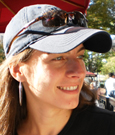
University of California
San Diego
USA
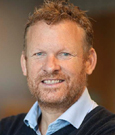
UMC Utrecht
The Netherlands

Stanford University
USA

EMBL-EBI Hinxton
UK

Centre for Genomic
Regulation (CNAG-CRG)
Spain
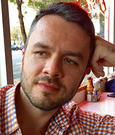
Weill Cornell Medicine
USA
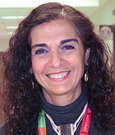
McGill University
Canada

EMBL Heidelberg
Germany
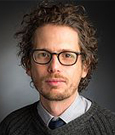
Weill Cornell Medical
College
USA

Harvard Medical School
USA
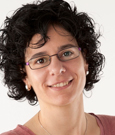
Institute for Research
in Biomedicine
Spain

Kyoto University
Japan

Memorial Sloan Kettering
Cancer Center
USA
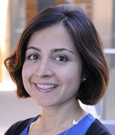
Wellcome Sanger Institute
UK
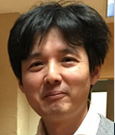
Keio University
Japan

EMBL Heidelberg
Germany
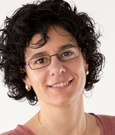
Institute for Research
in Biomedicine
Spain

Kyoto University
Japan

EMBL Heidelberg
Germany

EMBL Heidelberg
Germany
Got something to say? Tweet it! #EMBLCanGen
All times in the programme below are shown as the time in Europe/Berlin.
To find out the equivalent time zone in your location, enter Berlin, the programme time and your city into the Time Zone Converter.
| Time | Speaker |
|---|---|
| 12:00 – 12:50 | Pre-conference webinars:
|
| 13:00 – 13:50 | Pre-conference webinars:
|
| 14:00 – 14:10 | Opening remarks |
| 14:10 – 15:25 | Session 1: Mutation and clonal selection in normal tissues |
| 14:10 – 14:40 | The mutational landscape and clonal dynamics of Human Somatic and Germline cells Raheleh Rahbari – Wellcome Sanger Institute, UK AVAILABLE ON DEMAND AFTER LIVE STREAM |
| 14:40 – 14:55 | Somatic Mutations in The Ageing Brain Luke Harvey – Welcome Trust Sanger Institute, UK AVAILABLE ON DEMAND AFTER LIVE STREAM |
| 14:55 – 15:25 | Monogenic and polygenic inheritance become instruments for clonal selection Po-Ru Loh – Harvard Medical School, USA AVAILABLE ON DEMAND AFTER LIVE STREAM |
| 15:25 – 15:40 | Break |
| 15:40 – 16:25 | Keynote: Talk title to be announced Peter Campbell – Wellcome Sanger Institute, UK AVAILABLE ON DEMAND AFTER LIVE STREAM |
| 16:25 – 17:00 | Meet the speakers from Session 1 |
| 17:00 – 18:00 | Poster Session 1 (live chats and video calls with poster presenters with last names A-L) |
| 18:00 – 18:15 | Break |
| 18:15 – 20:15 | Session 2: Genomic instability and mutational processes |
| 18:15 – 18:45 | Patterns in local mutation density in cancer genomes Fran Supek – Institute for Research in Biomedicine, Spain AVAILABLE ON DEMAND AFTER LIVE STREAM |
| 18:45 – 19:00 | Re-running cancer evolution in vivo: a high-resolution multi-omics approach Sarah Aitken – University of Cambridge, UK AVAILABLE ON DEMAND AFTER LIVE STREAM |
| 19:00 – 19:30 | In silico saturation mutagenesis of cancer genes Nuria Lopez-Bigas – Institute for Research in Biomedicine, Spain AVAILABLE ON DEMAND AFTER LIVE STREAM |
| 19:30 – 19:45 | Antiviral treatment causes a unique mutational signature in cancers of transplantation recipients Jurrian de Kanter – Princess Máxima Center for Pediatric Oncology, The Netherlands AVAILABLE ON DEMAND AFTER LIVE STREAM |
| 19:45 – 20:15 | Haplotype-aware single-cell multiomics uncovers functional effects of somatic structural variation Jan Korbel – EMBL Heidelberg, Germany AVAILABLE ON DEMAND AFTER LIVE STREAM |
| 20:15 – 20:25 | Break |
| 20:25 – 20:55 | Meet the speakers from Session 2 |
| 20:55 – 21:30 | Virtual Speed Networking |
| Time | Speaker |
|---|---|
| 13:30 – 13:50 | Industry session |
| 14:00 – 16:30 | Session 3: Cancer evolution and drivers |
| 14:00 – 14:30 | Molecular classification and risk stratification of colorectal cancer Seishi Ogawa – Kyoto University, Japan AVAILABLE ON DEMAND AFTER LIVE STREAM |
| 14:30 – 14:45 | Discerning patterns of evolution during progression and metastatic spread in high risk neuroblastoma Gunes Gundem – Memorial Sloan Kettering Cancer Center, USA AVAILABLE ON DEMAND AFTER LIVE STREAM |
| 14:45 – 15:00 | ASCAT.sc: a generic framework for copy-number calling Maxime Tarabichi – Université Libre de Bruxelles (ULB), Belgium AVAILABLE ON DEMAND AFTER LIVE STREAM |
| 15:00 – 15:30 | Genotype to phenotype mapping of tumorigenesis at single cell resolution Christina Curtis – Stanford University, USA LIVE STREAM ONLY |
| 15:30 – 15:45 | Break |
| 15:45 – 16:15 | Stalled development through altered epigenetic states at the root of oncohistone pathogenicity Nada Jabado – McGill University, Canada AVAILABLE ON DEMAND AFTER LIVE STREAM |
| 16:15 – 16:30 | Reconstructing Chromothriptic Chromosomes in Oesophageal Adenocarcinomas Jannat Ijaz – Wellcome Trust Sanger Institute, UK AVAILABLE ON DEMAND AFTER LIVE STREAM |
| 16:30- 17:05 | Meet the speakers from Session 3 |
| 17:05 – 18:05 | Poster Session 2 (live chats and video calls with poster presenters with last names M-Z) |
| 18:05 – 18:20 | Break |
| 18:20 – 19:50 | Session 4: Emerging technologies in cancer genomics |
| 18:20 – 18:50 | Pathognomonic long molecule footprints of backup repair pathways in homologous recombination deficient cancers Marcin Imilienski – Weill Cornell Medicine, USA AVAILABLE ON DEMAND AFTER LIVE STREAM |
| 18:50 – 19:05 | Exploiting immunity of hepatocellular carcinoma (HCC) to improve treatment of patients Domitille Chalopin-Fillot – Université de Bordeaux, France AVAILABLE ON DEMAND AFTER LIVE STREAM |
| 19:05 – 19:35 | Single-cell and spatially-resolved tumor immune microenvironments Holger Heyn – Centre for Genomic Regulation (CNAG-CRG), Spain AVAILABLE ON DEMAND AFTER LIVE STREAM |
| 19:35 – 19:50 | Modeling human clonal hematopoiesis in vitro Franziska Briest – Universitäts Medizin Berlin, Germany LIVE STREAM ONLY |
| 19:50 – 20:00 | Break |
| 20:00 – 20:30 | Meet the speakers from Session 4 |
| 20:30 – 21:30 | Bar Mixer |
| Time | Speaker |
|---|---|
| 14:00 – 16:30 | Session 5: Cancer ecosystems, microenvironment and immunogenomics |
| 14:00 – 14:30 | Understanding of cancer genotype-phenotype association using organoid technology Toshiro Sato – Keio University, Japan AVAILABLE ON DEMAND AFTER LIVE STREAM |
| 14:30 – 14:45 | The relationship of germline risk to somatic EGFR mutation in lung cancer Matthew Meyerson – Dana-Farber Cancer Institute, USA AVAILABLE ON DEMAND AFTER LIVE STREAM |
| 14:45 – 15:00 | The impact and prevalence of genetic immune escape in primary and metastatic cancer Francisco Martínez-Jiménez – UMC Utrecht, The Netherlands AVAILABLE ON DEMAND AFTER LIVE STREAM |
| 15:00 – 15:30 | Epigenetic encoding, heritability and plasticity of glioma transcriptional cell states Dan Landau – Weill Cornell Medical College, USA AVAILABLE ON DEMAND AFTER LIVE STREAM |
| 15:30 – 15:45 | Break |
| 15:45 – 16:15 | Germline immune variants influence tumor immunotherapy outcomes Hannah Carter – University of California, San Diego, USA AVAILABLE ON DEMAND AFTER LIVE STREAM |
| 16:15 – 16:30 | The somatic mutational landscape of normal tissues in chemotherapy-treated cancer patients Ellie Dunstone – Sanger Institute, UK AVAILABLE ON DEMAND AFTER LIVE STREAM |
| 16:30 – 17:05 | Meet the speakers from Session 5 |
| 17:05 – 17:20 | Break |
| 17:20 – 19:20 | Session 6: Cancer genome medicine |
| 17:20 – 17:50 | Talk title to be announced Elli Papaemanouil – Memorial Sloan Kettering Cancer Center, USA LIVE STREAM ONLY |
| 17:50 – 18:05 | A clinical-molecular and personalized risk scoring system for patients with myelodysplastic syndromes Elsa Bernard – Memorial Sloan Kettering Cancer Center, USA AVAILABLE ON DEMAND AFTER LIVE STREAM |
| 18:05 – 18:35 | Spatial genomics maps the structure, character and evolution of cancer clones Moritz Gerstung – EMBL-EBI Hinxton, UK AVAILABLE ON DEMAND AFTER LIVE STREAM |
| 18:35 – 18:50 | Mutagenic effects of chemotherapy in secondary malignancies and normal cells in pediatric cancer patients Axel Rosendahl Huber – Princess Máxima Center for Pediatric Oncology and Oncode Institute, The Netherlands AVAILABLE ON DEMAND AFTER LIVE STREAM |
| 18:50 – 19:20 | Understanding mutational landscapes in metastatic cancer Edwin Cuppen – UMC Utrecht, The Netherlands AVAILABLE ON DEMAND AFTER LIVE STREAM |
| 19:20 – 19:30 | Closing remarks |
| 19:30 – 20:00 | Meet the speakers from Session 6 |
Registration Fees (include access to all of the talks, digital poster sessions and online group discussions, and help us cover our costs to run the event. For further information please refer to the FAQ page):
| Academia | 190 Euro |
| PhD Student | 140 Euro |
| Industry | 240 Euro |
| EMBL Staff | Intranet access |
Accredited journalists may be eligible to register for a complimentary registration. Registrants may be required to provide accreditation or equivalent proof of press membership after registration. Please contact Maryann Heck for more information.
Registration will be on a first-come first-served basis. Your place can only be confirmed after payment of the registration fee.
Types of payments accepted are international bank transfers and credit card payments.
Only registered participants are eligible to submit an abstract. We only accept online abstract submissions.
After you have logged in and successfully registered, you will receive an email asking you to submit your abstract. Click on the link provided and enter your abstract in the text box provided. Alternatively you can submit your abstract by clicking on the link on the confirmation page directly after registering.
When submitting your abstract you can also apply for an oral or poster presentation. A selection process will take place with the results announced 2-3 weeks after the abstract submission deadline.
All academic and student registrants are invited to apply for a registration fee waiver, provided by the EMBL Advanced Training Centre Corporate Partnership Programme. The registration fee waiver covers the registration sum that you have paid to attend the meeting. Conference participants are not required to pre-pay the registration fee to be selected for a fee waiver for a virtual meeting. If you have already paid the registration fee and are awarded a fee waiver, it will be reimbursed after the meeting. Course participants are required to pay the course fee in advance, which will then be reimbursed after the recipient has attended the course.
For participants and speakers with childcare responsibilities there is the possibility to apply for a grant, provided by the EMBL Advanced Training Centre Corporate Partnership Programme, to offset childcare costs incurred when participating at a virtual event. Eligible costs include fees for a babysitter or childcare facility or travel costs for a care giver. Please note that priority will be given to early stage researchers. Costs will be reimbursed after the meeting only once a reimbursement form and original receipts have been received. Attendance at the event is required in order to be eligible to receive the reimbursement. In order to apply for this grant, you must be registered by the abstract submission deadline.
Applications for financial assistance can be submitted via the submission portal* (for the submission of abstracts for conferences or the submission of motivation letters for courses) by completing the Financial Assistance Application Section (underneath the section for entering abstract/motivation letter information). The link to the portal can be found in the registration confirmation email that you will receive after registering for the conference or course.
For conferences, if you are not submitting an abstract, you can still apply for financial assistance in the submission portal. Take a look at the instructions for applying for financial assistance.
Note that priority will be given to those submitting an abstract to present at the conference. In your application you will be asked to answer questions regarding your motivation for applying, and, for registration fee waivers, the reasons why your lab cannot fund your attendance and how your attendance will make a difference to your career. Application for financial support will not affect the outcome of your registration application.
*For some events, applications for Childcare Grants will still be done by email. Information about the grant will be sent out shortly after the abstract/motivation letter deadline. Please contact the event Conference Officer if you have any questions.
The scientific organisers will select the recipients of registration fee waivers during the abstract selection process for conferences and the participant selection process for courses. Results will be announced approximately 3 – 4 weeks before the event start date. Selection results do not impact your admission to the meeting. Registration fee waiver selection is based on your current work or study location, your motivation for applying, the reasons for needing financial support and the impact this event will have on your career. Childcare grants are allocated based on career stage, with priority given to early stage researchers.
A list of external funding opportunities can be found here, and information on attending a conference as an event reporter here.
For further information about financial assistance please refer to the FAQ page.
Please do:
Please don’t:
Additional information can be found in our Code of Conduct.
It is important to stay healthy and move around, especially when you are attending an event virtually. We have put together a few coffee break stretches and yoga videos in the events Slack workspace for you to enjoy during the event.
Questions during and after the talks can be asked in live streaming platform. The chair moderates the questions and shares them with the speaker. If time runs out or you think of a question later, you can use Slack to ask your questions in the dedicated session channels or via direct message.
The programme is planned based on Central European Summer Time (CEST), unless otherwise stated. As many virtual participants are attending from around the world, we do our best to accomodate as many timezones as possible when creating the programme. Please take your time zone into consideration when planning your attendance.
We are using a virtual event platform for this conference. More information about the platform will be shared ahead of the conference.
Gold sponsor
Silver sponsors
Media Partnership
Molecular Systems Biology, an EMBO Press journal
Molecular Oncology, a FEBSPRESS journal
International Union of Biochemistry and Molecular Biology
Open Biology, a Royal Society journal
Sponsorship Opportunities
We offer a variety of event sponsoring possibilities, with the flexibility to select a set sponsorship package or combine individual sponsorship options to suit your event budget. Discounts are available for companies sponsoring multiple events at EMBL Heidelberg. View other conferences, or contact sponsorship@embl.de for further information.
If you are interested in becoming a media partner of this event, please visit our media partnerships webpage.
EMBL wishes to warn sponsors of EMBL conferences and courses of fraudulent schemes purporting to offer sponsorship opportunities on behalf of EMBL or affiliated with EMBL officials. One current scam campaign of which we are aware is conducted using the name ‘Judy Eastman’ (judy@gopcontact.a2hosted.com) and entails approaches to sponsors offering sponsorship opportunities on EMBL’s behalf. Please be kindly advised that all relevant communication regarding sponsorship of EMBL conferences, symposia and courses is handled by EMBL directly and is sent from an official EMBL account. EMBL does not work with any external providers on sponsorship acquisition.
Please also note that:
Suspicious communications purportedly from, for or on behalf of EMBL should be reported to EMBL at the following email address sponsoring@embl.de.
Pre-symposium webinars will take place on Monday, 22 November 2021
Participation in this webinar is free of charge for registered conference attendees. The number of available places is limited (first come, first served). All registered conference attendees will receive an email with a registration link.
12:00 – 12:50 (Berlin / Germany)
Speaker: Dr. Christoph Benedikt Westphalen, Comprehensive Cancer Center München
Immunotherapeutic interventions have revolutionised the treatment landscape in various malignancies.
A more profound understanding of mechanisms underlying response and resistance to this class of agents will help to maximise patients’ benefit.
A range of potentially predictive biomarkers beyond PD-L1 and dMMR/MSI are under investigation to help identify patients qualifying for immune therapy. Furthermore, additional modalities such as digital pathology, artificial intelligence and functional imaging are coming of age.
This seminar aims to give an overview on emerging biomarkers and technologies supporting personalised approached in immunotherapy.
Speaker: Matteo Tosolini, PhD, Business Development Manager, Epigenomic Services Profiling, Diagenode, a Hologic Company
DNA methylation is an epigenetic mechanism characterized by the addition of a methyl group to the DNA, mainly at cytosines. It can occur at different genomic locations, and it can modify gene expression and function. The profile of DNA methylation is tissue-type and cell-type specific. A hallmark of cancer is the presence of an aberrant DNA methylation profile and this modification appears to happen early during carcinogenesis. For these reasons DNA methylation can be used as a cancer specific biomarker.
Circulating cell-free DNA (cfDNA) is composed by fragmented DNA released by different mechanisms into the bloodstream, mainly from apoptotic cells including healthy body cells as well as cancer cells. Analysis of cfDNA is very promising and has a great potential in cancer diagnostics given its noninvasive approach requiring only a blood or plasma sample in a process known as liquid biopsy. Interestingly cfDNA retains the genetic and epigenetic information of the tissue of origin. Circulating tumour DNA (ctDNA), meaning DNA fragments that originate from cancer cells, can thus be used as potential biomarker for early cancer detection and diagnosis. The first proof of concept was published last year by the Circulating Cell-free Genome Atlas consortium (CCGA).
The analysis of methylated cfDNA by bisulfite sequencing does not come without challenges as those samples are in low quantity and poor quality because cfDNA is highly fragmented and the ctDNA is diluted by cfDNA from normal body cells.
In this webinar we will present how Diagenode can help by applying our workflow of DNA methylation biomarker discovery and validation in biofluids. We will start with Whole Genome Bisulfite Sequencing (WGBS) on cfDNA to determine the CpGs and the pattern of DNA methylation by using standard statistics as well as data mining approaches and to discriminate between different groups. We will proceed with the most adapted and fully customized Targeted Bisulfite Sequencing approach on cfDNA to validate the previously identified CpG methylation signature as biomarker and screen a higher number of patients.
13:00 – 13:50 (Berlin / Germany)
Speaker: Anthony Schmitt, PhD., SVP of Science, Arima Genomics
Ependymoma is a tumor of the brain or spinal cord. The two most common and aggressive molecular groups of ependymoma occur mainly in young children and frequently recur after treatment.
Although molecular mechanisms underlying these diseases have recently been uncovered, they remain difficult to target. Innovative therapeutic approaches are urgently needed.
Join this webinar to learn how we:
Speaker: Argyris Papantonis, Dovetail Genomics
Recent work has established that 3D genome organization is causally linked to gene expression control, also in tumors and cancer. In addition, most cancer genomes are infested with structural variants (SVs) that contribute to oncogenesis and cancer progression via various mechanisms. We performed Hi-C experiments on glioblastoma stem cells (GSCs) from 26 patients to generate a resource of >13 billion contacts. We used this Hi-C data resource to detect and characterize patient-specific SVs, and then build individualized genome references. We identified >1100 high-confident SVs, which were highly heterogeneously distributed across the 26 patient genomes. Following integration with gene expression data, and despite heterogeneity, we found partially recurrent effects on gene expression misregulation that could be linked to the formation of many hundreds of neo-TADs and neo-loops in these GSC genomes. Together, this is the first such comprehensive approach in leveraging 3D genome heterogeneity to understand regulatory dependencies in glioblastoma.
Date: 22 - 24 Nov 2021
Location: Virtual
Deadline(s):
Abstract submission: Closed
Registration: Closed
Organisers:
Contact: Maryann Heck